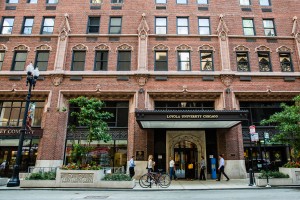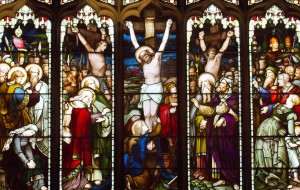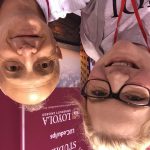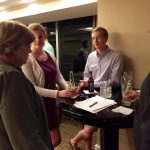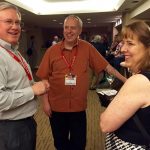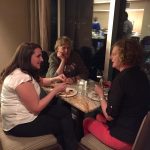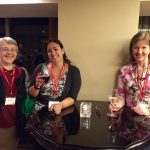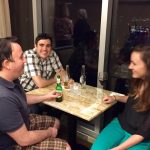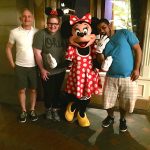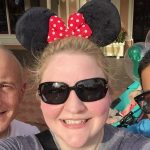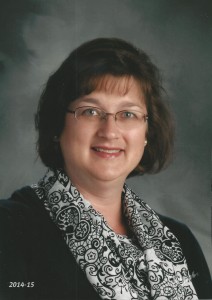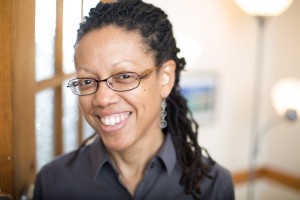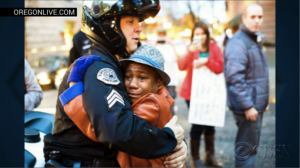Elizabeth Reardon is ready to accept her Master’s degree in May and commit fully to work in her archdiocese. Elizabeth tells us about her challenges, achievements and motivations. She also has some great advice for students just beginning their journey.
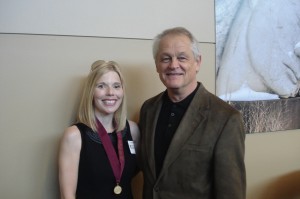
Hometown: Though originally born in the South, I have lived in Plymouth, MA for the past 19 years.
What did your studies focus on at IPS?
As a student at Loyola’s Institute of Pastoral Studies, the focus of my Master’s studies has been Religious Education. While primarily an online student, I have been fortunate to visit Loyola’s campus and travel to Rome as part of Loyola’s 1st summer study abroad.
What do you want to be doing upon graduation?
Presently, I am working towards Pastoral Associate certification with a board review anticipated sometime in late May and a course in canon law forthcoming. Thus, I have begun looking for a position within the Archdiocese of Boston as a pastoral associate or faith formation coordinator. Having served in lay ministry in various capacities for many years, this is definitely where my heart is being led to follow. Likewise, with the shortage of priests and the rapid movement of parishes into a collaborative status, there is a great need for a growing number of “workers in the vineyard”.
What has been your biggest accomplishment while at IPS?
The greatest accomplishment or honor given while at IPS would have to be my acceptance into Alpha Sigma Nu, the National Jesuit Honor Society. Words cannot express the truly humbling experience of being selected for inclusion into Alpha Sigma Nu with such an amazing group of students dedicated to both academic excellence and service. Spanning ethnicities, and continents they embody God’s incredible diversity and gifts of the Spirit, witnessing God at work in their lives today. Through them, I both experience community and recognize the consequences of my faith to work for peace and justice yet also hope and trust in the transforming work of the Holy Spirit. How blessed I am to have been given such an amazing “family” in Christ! For those professors, priests, theologians, friends and colleagues who have shown support and love, but challenged and inspired me to reach deeper and go further in my faith – Thank you!
Were there any challenges you had to overcome during your time here?
Yes, in returning back to college later in life there is the new struggle of balancing family, prior commitments and coursework. I found that whenever possible that I would work ahead to allow for unforeseen events that arise, and for much needed time with my family. While there were overlaps in my attention, I fully sought to make the time given to each activity worthwhile.
What was your favorite class and why?
There is no way I can choose just one class as my favorite, yet I can clearly identify the classes that have helped shape my pastoral perspective for the future. Liturgy and Christian Sacraments with Heidi Russell in Rome, has been an essential foundation for understanding what it really means to live a life fully in the sacraments. Exemplifying what it is to embrace a life of communion, this further empowers a life of discipleship and mission. Thus, Church and Mission with Peter Jones gave a beautiful glimpse of the mission that continually beckons us as a Church to walk with others on a path of mercy, reconciliation and renewal. In doing so, we are called to reexamine our lived discipleship through our faithfulness to Christian ethics and social justice (Christian Moral Theology and Ethics with Therese Lysaught). This calls for an authentic witness of our faith to the often troubling circumstances of the world around us.
Do you have any advice for future students?
When the going gets tough, pray and if you feel alone in the struggle, reach out to other students. They are going through the journey with you and IPS is an incredible community of faith. Also, I went my first year without a spiritual director and this is an invaluable gift. Not only for your personal spiritual development, but this time will help you better discern where God is leading you to be.
As a recent graduate, in what way will you go forth to “change the world?”
I believe that just as our faith is not static, but a living and vibrant encounter, so should our pedagogical attitude be. Through the interaction of reflection, engagement, and practice there is much work to be done in bridging the gap between liturgy and their lived expression in the life of the community. This final step is for me where I currently find myself wanting to contribute more in the world around me. For, how can one live a sacramental life and not feel compelled to seek also its expression in addressing the challenges of poverty, human dignity, and liberation?
**Connect with Elizabeth:
Blog – Theologyisaverb.com
Facebook & Google+ – Elizabeth Reardon
Twitter, Instagram & Pinterest – @theologyisaverb
Join the conversation by following @BrianSchmisek on Twitter and @LoyolaIPS on Instagram! Also, network with the Loyola Chicago IPS community on LinkedIn.

